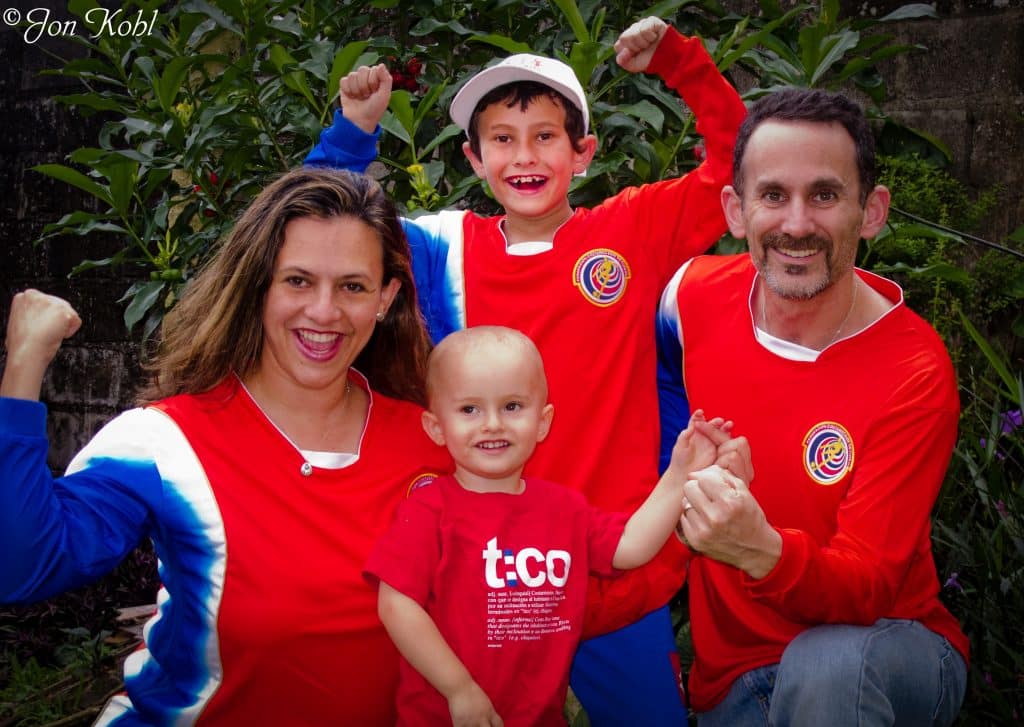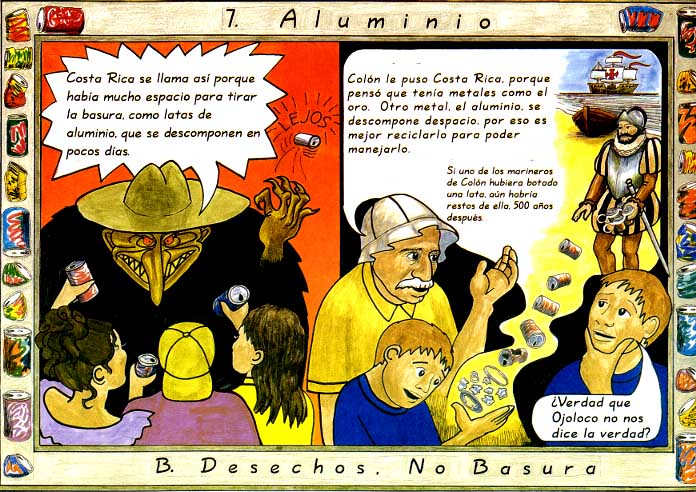Who would have thought that a crazy-eyed humanoid creature that lived in Costa Rica’s largest landfill could transform my Peace Corps experience and my life? But that is exactly what happened in 1993 when I served at the venerable Simon Bolivar National Zoo and Botanical Garden located in San José, the capital of Costa Rica.
As a Peace Corps zoo interpreter, I led educational programs for 6,000 primary school kids and curated the photography and natural history object collections. Yet, thanks to the litter that decked the streets of the city outside the zoo’s gates, the solid waste education project defined my work.
In an attempt to confront growing piles of trash, the two Costa Rican zoo educators suggested that I write a children’s story with a teacher’s activity guide. The materials would present ideas about solid waste. A gringo like me could not write convincing Costa Rican Spanish. So, we recruited a well-known environmental muralist, Deirdre Hyde, to paint 17 cartoon vignettes, and a teacher with experience in children’s literature, environmental education, and, well, trash. That teacher was Antonieta Castro, the principal of the Rio Azul Elementary School. Rio Azul, located in the town of the same name, was that largest landfill. It rose up like a mountain and dominated the view from her office window.
For months Antonieta and I worked on a story about Ojoloco who lived in the landfill. This trash-loving biped ventured into San José where he induced children to throw trash everywhere. Only young Simon resisted his spell, despite sneers from his peers. Eventually Simon overcame Ojoloco and saved the day. Sadly, while helping to write about Ojoloco, Antonieta suffered a stroke and died, leaving the zoo educators and I to complete the story. Bless her soul.
Each of the 17 vignettes showcased a different theme such as recyclable materials or waste management techniques. Together they became a portable exhibit. Teachers who completed the in-zoo training about the story and the teacher’s guide, received the exhibit to hang on their school walls. The portable exhibit has been donated to the Museum of the Peace Corps Experience.
Three months before I was to leave Costa Rica, a high school group arrived at the zoo’s single classroom. My office connected to this space. A young teacher, stood in my open doorway and asked, “Are you Jon Kohl?”
Startled, I looked up at the smiling face, “Ah, yes, and who are you?”
“My mother talked a lot about you.”
“Who was your mother?” I asked.
“Antonieta Castro.”
My heart thumped: the same Antonieta Castro who had passed away during story writing?
Her daughter, Marisol, who detested zoos, was substituting that day for teacher who was ill. In the coming weeks, Marisol shared her interest in environmental education with me and since I was the only person she knew with email, we continued to write after I returned to the US.
For five years we sustained an international email relationship. In 2000 she moved in with me in Honduras. In 2004 we married, had two kids, and now live in Costa Rica.

Like many volunteers, I didn’t get to see the Ojoloco project implemented. It wasn’t until I returned home to attend graduate school that the zoo inaugurated the project. The ceremony included both the ministers of education and the environment. Costa Rica’s largest daily, La Nación, ran an article inside the front cover that day.
In some measure, Marisol and I owe a lifetime of gratitude to the trash-loving Ojoloco. Thanks to him I met my future would-be mother-in-law and wife. Thanks to him we have a family and live near the zoo where this drama unfolded. Due to teacher complaints that the character was too scary for students, nevertheless, the zoo shut the project down. Now Ojoloco lies at rest, not in a landfill, but in this Museum.
Fortunately, Costa Ricans no longer need Ojoloco’s didactic disdain for cleanliness, because our culture has evolved, and litter no longer haunts the streets of San José.




